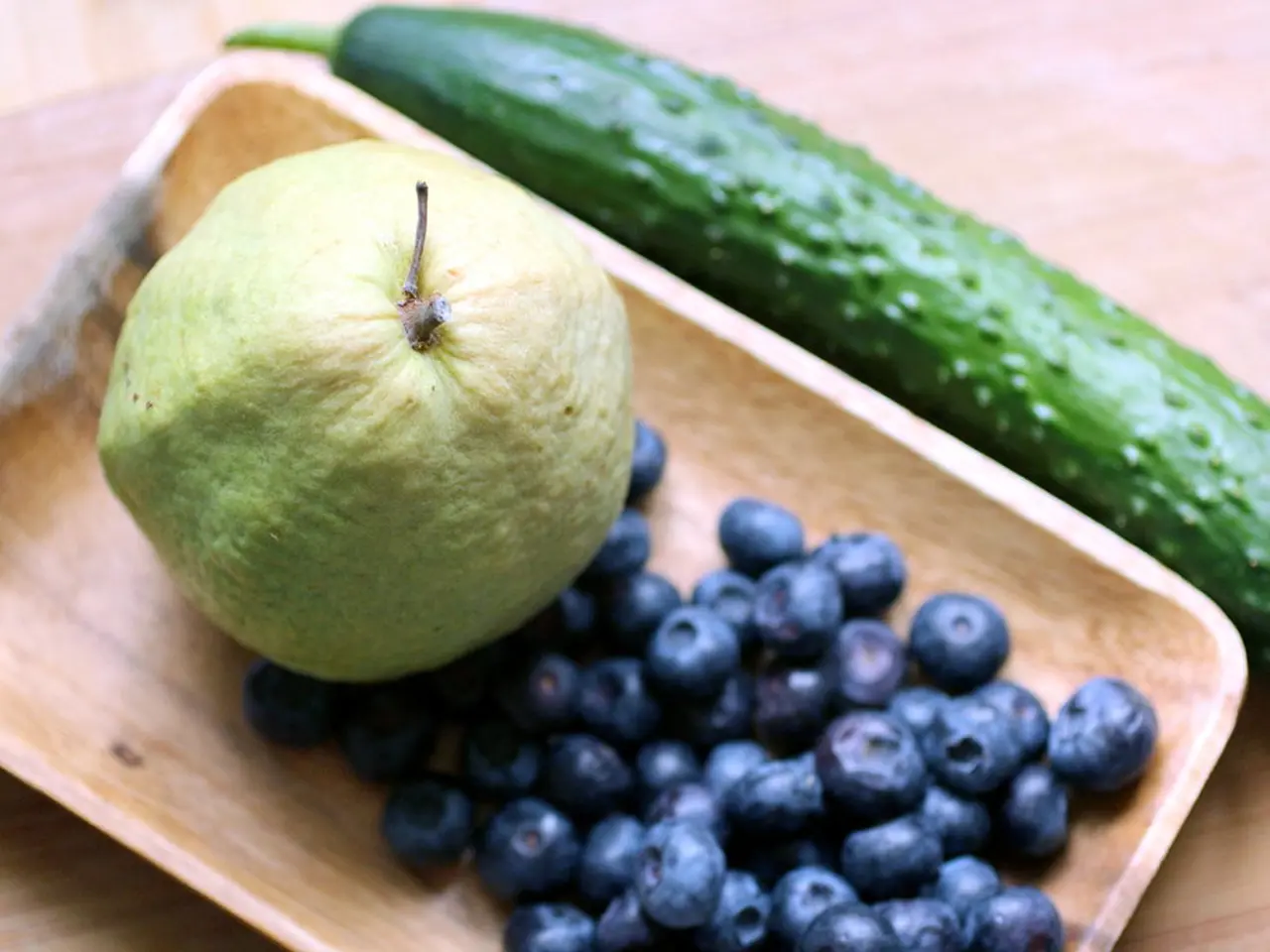Health Advantages, Nutrients, and Applications of Cucumbers: Exploring Their Benefits, Composition, and Practical Uses
Cucumbers, often celebrated for their refreshing hydration and skin health benefits, offer a wealth of additional advantages for our wellbeing. These versatile vegetables, part of the Cucurbitaceae family that also includes squash and melons, are a nutritious addition to any diet.
First and foremost, cucumbers are low in calories, fat, cholesterol, and sodium, making them an ideal choice for weight management. Their high water and fiber content promotes feelings of fullness, thereby aiding in reducing overall calorie intake.
Beyond weight loss, cucumbers play a significant role in maintaining cardiovascular health. Rich in potassium and magnesium, they help dilate blood vessels and reduce blood pressure by flushing out excess sodium. This, in turn, supports heart health by promoting the reduction of triglycerides and LDL cholesterol, lowering the risk of heart diseases like atherosclerosis.
Digestive health is another area where cucumbers shine. The fiber found in cucumber skin aids in regular bowel movements and improves gut health, while its water content softens stools and reduces the risk of constipation.
Cucumbers also demonstrate potential in diabetes management due to their low glycemic index and compounds that can help regulate blood sugar levels by stimulating insulin release. This makes them beneficial for those managing diabetes.
Moreover, cucumbers are a rich source of vitamin K, which supports calcium absorption and bone mineralization, helping to maintain strong bones and reduce the risk of osteoporosis.
Cucumbers also act as a natural diuretic, supporting kidney health by increasing urine production and aiding in toxin elimination. They contain flavonoids, tannins, and beta-carotene, which combat harmful free radicals, protecting against heart disease, cancer, and premature aging.
It's essential to note that while cucumbers offer numerous health benefits, consuming them in excess, particularly those rich in vitamin K, could potentially affect blood clotting, especially for those on blood-thinning medications like warfarin (Coumadin).
The USDA reports that a medium-sized cucumber contains significant amounts of antioxidants, in addition to water (95.5 g), protein (0.62 g), fat (0.18 g), carbohydrate (2.95 g), calcium (16 mg), iron (less than 0.25 mg), magnesium (10.1 mg), phosphorus (23 mg), potassium (170 mg), sodium (2 mg), vitamin K (24 mcg), and more.
Cucumbers are versatile in their usage, often consumed raw and complementing a variety of foods such as cheese, turkey, salmon, nut butter, and more. They can be blended with other vegetables like carrots and celery to make a refreshing juice or mixed with garlic, mint, and Greek yogurt to accompany a curry.
Infusing water with mint leaves and cucumber adds a refreshing twist, while cucumber slices can be dipped in hummus for a tasty snack. In hot weather or after a workout, cucumbers help prevent dehydration due to their high water content.
The Environmental Working Group suggests buying organic cucumbers or growing them at home to minimize pesticide exposure. However, it's important to note that some people may have an allergic reaction to cucumbers, causing symptoms such as hives, swelling, or difficulty breathing; these individuals should avoid cucumbers.
In conclusion, cucumbers offer a myriad of health benefits, from supporting cardiovascular health to aiding in digestion, weight management, and blood sugar regulation. They also contribute to bone health and detoxification, thanks to their antioxidant properties. Whether enjoyed raw, blended, or infused, cucumbers are a nutritious and refreshing addition to any meal.
- Cucumbers, known for their skin health benefits, also provide advantages in weight management due to their low calorie, fat, cholesterol, and sodium content.
- Rich in potassium and magnesium, cucumbers aid in maintaining cardiovascular health by dilating blood vessels and reducing blood pressure.
- The fiber in cucumber skin improves digestive health by promoting regular bowel movements and reducing the risk of constipation.
- With a low glycemic index, cucumbers exhibit potential in diabetes management by regulating blood sugar levels.
- Vitamin K-rich cucumbers support calcium absorption and bone mineralization, helping maintain strong bones and reduce the risk of osteoporosis.
- Cucumbers also function as a natural diuretic, supporting kidney health by increasing urine production and aiding in toxin elimination.
- Consuming excessive amounts of vitamin K-rich cucumbers could potentially affect blood clotting, especially for those on blood-thinning medications.
- Incorporating cucumbers in various ways, such as salads, juices, or infused water, contributes to a health-and-wellness lifestyle, providing benefits in areas ranging from digestion to cardiovascular health and detoxification.




